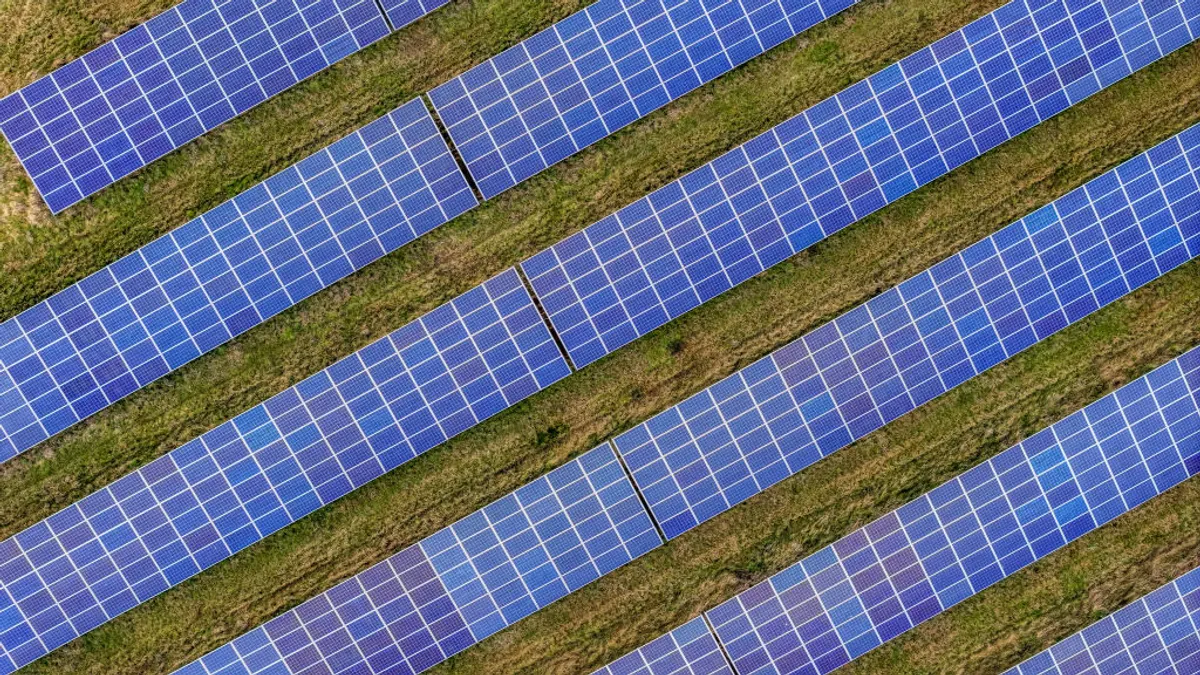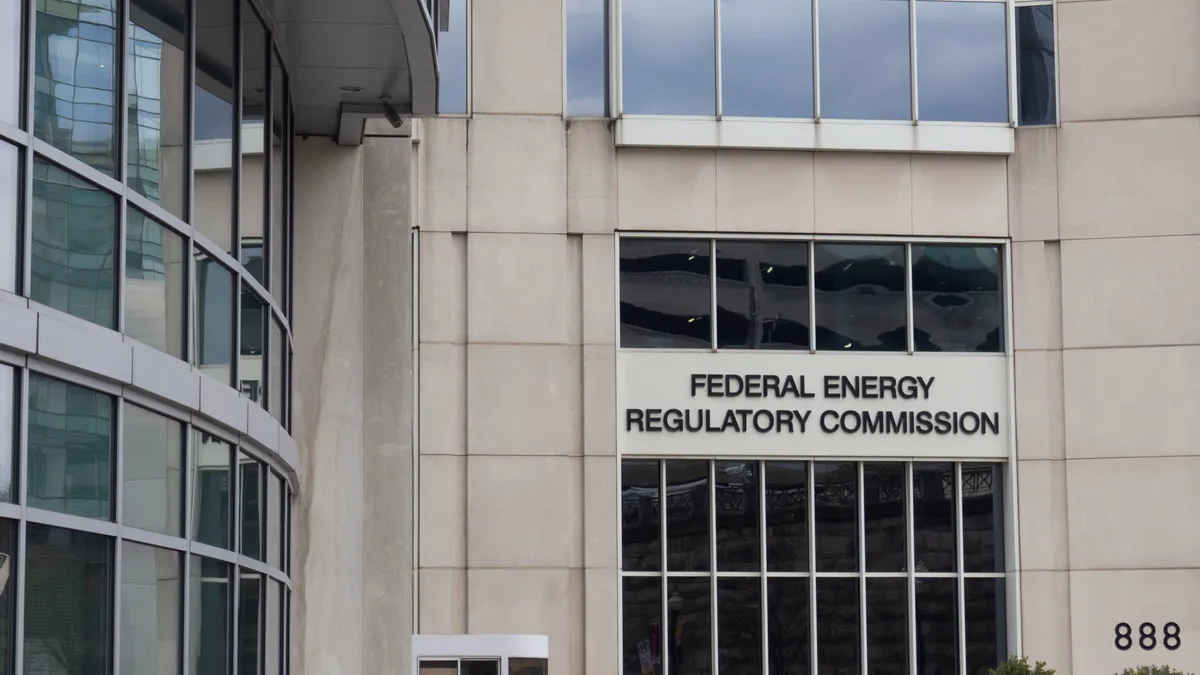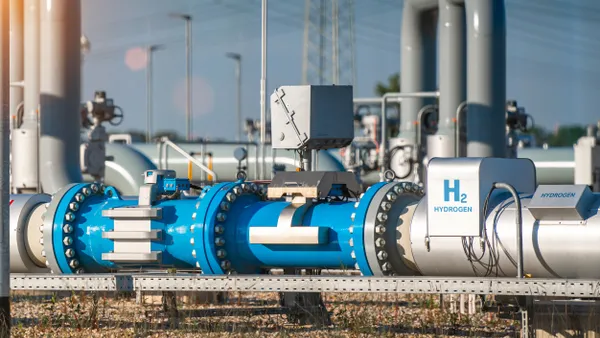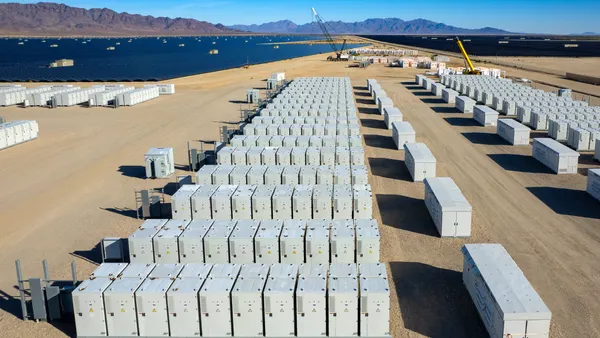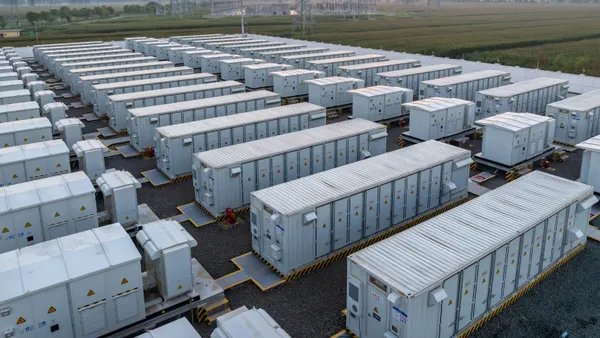Dive Brief:
-
The Federal Energy Regulatory Commission on Thursday postponed a decision on a major liquefied natural gas export facility when Chairman Neil Chatterjee pulled it from the agenda shortly before the agency’s monthly open meeting.
-
The chairman said he was “disappointed” not to vote on Venture Global's Calcasieu Pass LNG export facility, but removed it from consideration after an apparent impasse with the two Democrats on FERC. The Democrats oppose the facility and can deadlock the five-member commission due to the prolonged absence of Republican Commissioner Kevin McIntyre, who stepped down as chairman due to health issues.
-
The chairman also defended new Commissioner Bernard McNamee, who has faced calls to recuse himself from key agency proceedings due to his past work on coal and nuclear bailout proposals. Chatterjee said he should be given "the opportunity to demonstrate ... that he will be an earnest public servant."
Dive Insight:
Chatterjee's decision not to vote on the Clacasieu Pass facility in Louisiana on Thursday demonstrates persisting conflict over how the commission considers greenhouse gas emissions from gas pipelines and export facilities.
None of the federal regulators explicitly expressed their support or opposition for the LNG export facility at Thursday’s open meeting, saying they wanted to keep internal deliberations secret. But their comments revealed a partisan divide that has stalled the project’s approval.
In her opening statement, Democrat Commissioner Cheryl LaFleur said she was "prepared to cast a vote" on the project, but noted her past opposition to gas project approvals that do not consider the full impacts of greenhouse gas emissions from the facility.
"I'm open to approving infrastructure projects that I believe are in the public interest," LaFleur said. "There are approaches to finding common ground going forward and I remain ready to vote on this project and will consider the record as it exists at such a time it comes before us for a vote."
Democrat Commissioner Richard Glick also mentioned the LNG project and his frequent opposition to FERC's emissions accounting for gas projects over the past year.
"The commission's choice to ignore climate change in natural gas infrastructure proceedings benefits no one except those trying to make ideological points about climate change," he said, "and makes it hard to reach an agreement on infrastructure, something we'll hopefully be able to work on next year."
With both Democrats opposed to the project, all three Republicans would need to vote together to approve it. But McIntyre, who stepped down from the chairmanship in October, has not voted on an order since then, and McNamee, who was sworn in last week, voted "present" on every commission item Thursday, saying he wanted more time to study the issues at FERC.
The chairman's office holds the power to pull items from the agenda. After the meeting, Chatterjee expressed disappointment that FERC could not approve the LNG export facility that day, calling out what he said was LaFleur's past support for such applications.
"I appreciate my colleague's concerns but also, when she was chairman, she had a reputation of being a strong supporter of LNG exports," Chatterjee said. "The policy was fine then."
Chatterjee also defended Commissioner McNamee, who was confirmed last month amid controversy over his past role crafting a coal and nuclear bailout proposal at the Department of Energy and filmed comments of him criticizing renewable energy and questioning climate science.
"There were questions about me because of my partisan legislative background before coming to the commission," Chatterjee said, referring to his eight years working for Senate Majority Leader Mitch McConnell, R-Ky. "I probably wasn't always helpful in dissuading those, but I do believe if you look back on my record in the year and a half … I truly hope people feel I'm trying to play it straight and trying to be an earnest public servant."
"All I would ask is that he be given an opportunity to demonstrate that like myself he will be an earnest public servant," the chairman added.
Senate Democrats, environmental groups and the Harvard Electricity Law Initiative have all asked McNamee to recuse himself from FERC's resilience docket — set up after FERC rejected the DOE bailout plan McNamee helped design.
Not doing so, Harvard lawyers warn, could make any order in that docket vulnerable to legal challenge if McNamee votes on it, but Chatterjee said he is not concerned about the issue.
"I think the outstanding [FERC staff members] every day come to work to ensure that the actions we take here are legally defensible to the maximum ability and that we absolutely minimize our legal vulnerability," he told reporters. "I have complete confidence in the lawyers in this building to ensure on all of these fronts that whatever actions we take will be with an eye toward ensuring the maximum ability to withstand legal scrutiny."
McNamee will consult those agency ethics lawyers on recusal questions, but ultimately any decision will lie with his office.
"All I know is that on his very first day at the commission he went and received ethics training and sat down with our legal counsel here to discuss these matters, as we all did on our first days here at the commission," Chatterjee said. "And so I would defer those questions to Commissioner McNamee and the outstanding and ethical legal office at the commission."



